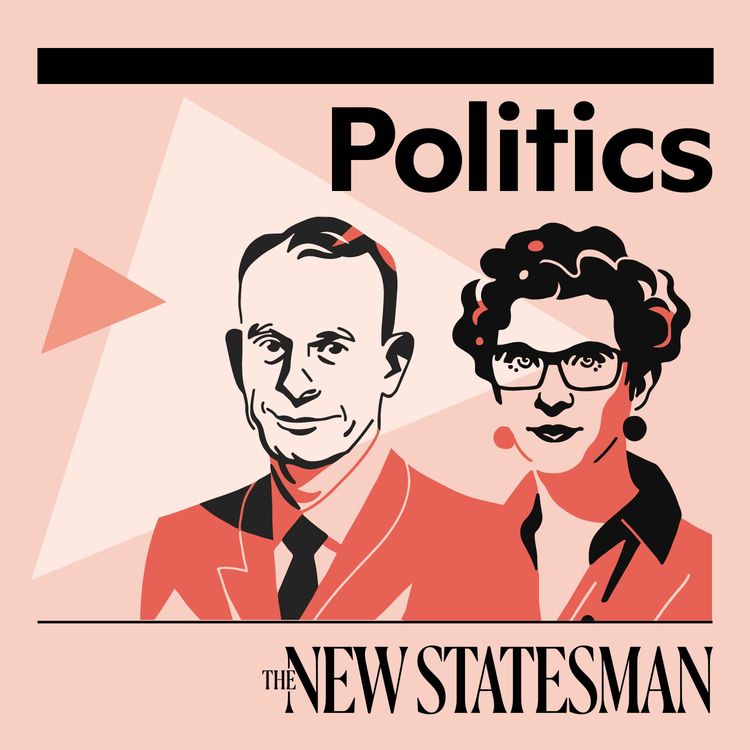Share

Daily Politics from the New Statesman
How do we fight terror now? - Andrew Marr and Jacob Davey on the Southport killer trial.
Is Axel Rudakubana a terrorist, or just a very disturbed individual?
Hannah Barnes is joined by Andrew Marr and Jacob Davey of the Institute for Strategic Dialogue to discuss the trial of Alex Rudakabana, who has pled guilty to the murder of three young girls in Southport.
Keir Starmer has responded to the guilty plea and ordered a new public inquiry - but critics say the Prime Minister waited too long to act.
How should the government respond to the threat of self-radicalised attackers, and the changing nature of “terrorism”?
–
📚 READ: Southport and the changing face of terror
https://www.newstatesman.com/politics/society/2025/01/southport-and-the-changing-face-of-terror
🙋♀️ ASK a question:
We answer listener questions every Friday. Submit your by commenting here, or at www.newstatesman.com/youaskus
📧 FREE get our daily politics email
https://morningcall.substack.com
💷 SAVE Become a New Statesman subscriber:
Get access to all our reporting at newstatesman.com and receive your copy of our weekly magazine. Podcast listeners can get the first two months for just £2 at https://www.newstatesman.com/save
SAVE £££ THIS CHRISTMAS:
⭐️ Gift big ideas, bold politics, and proper journalism from just £2
LISTEN AD-FREE:
📱Download the New Statesman app
MORE FROM THE NEW STATESMAN:
❓ Ask a question – we answer them every Friday
⏰ Get our daily politics newsletter every morning
✍️ Enjoy the best of our writing via email every Saturday
More episodes
View all episodes

Rutger Bregman “This Trump phenomenon really is fascism”
22:04|This week we launched another, that’s right ANOTHER, podcast. The Exchange is the New Statesman’s long-form interviews show, featuring some big names you know, and some big names you’ll be glad to learn of.
Andrew arrested
28:20|The King’s brother, Andrew Mountbatten-Windsor, has been arrested.The alleged offence: misconduct in public office. The arrest came after claims Andrew allegedly shared official documents during his time as UK Trade Envoy, with two emails in particular showing up in the latest Epstein files – although police haven’t yet released the specifics of their investigation.Police have searched Andrew’s homes, and at the time of recording the former Prince is in custody. He’s not yet been charged, and has previously – strenuously – denied any wrongdoing on these matters related to Epstein. The King has said “the law must take its course”. Oli Dugmore is joined by Will Lloyd in the studio.
Is Bridget Phillipson really the most dangerous woman in Britain?
36:02|From “Nazi” to “Marxist” Bridget Phillipson, the education secretary, has faced intense criticism from all sides.But how exactly is she trying to reform the British education system? For the cover of this week’s New Statesman magazine, our executive editor Pippa Bailey has written an extended profile of Phillipson - exploring what motivates the education secretary, and how consequential the next few months could be for her - and the Labour Party.She joins Oli Dugmore in the studio.📚 READ: https://www.newstatesman.com/cover-story/2026/02/is-bridget-phillipson-the-most-dangerous-woman-in-britain
Has Starmer killed Welsh Labour?
27:29|Eluned Morgan, the first minister of Wales speaks to Megan Kenyon about her relationship with Keir Starmer, Welsh Labour’s prospects in the upcoming Senedd election and the threat of Plaid Cymru and Reform.
Should we ban social media for under-16s?
32:05|Will Keir Starmer ban kids from social media?Subscribe on YouTube: https://www.youtube.com/channel/UC2DHAQOeEg-Z-4trARDXHRA?sub_confirmation=1The PM has promised a crackdown on social media and said he’s “open-minded” to a full on, Australia-style ban for under 16s. Oli Dugmore is joined by senior editor George Eaton.
The Labour Party's "unpopularity contest"
33:23|Labour’s unpopularity contest, the joys of figure skating and bonkers advice from RFK Jr's nutrition chatbot.Anoosh Chakelian and Will Dunn explore the most ludicrous and laughable stories of the week.Including calls for Britain to set up a “Ministry of Sex”...
£100k salary, feeling poor – is tax killing ambition?
24:24|A listener paying 67% in tax asks if Labour are destroying UK productivity. From the new and improved New Statesman podcast studio, Anoosh and Rachel answer listener questions on tax, student loans and Nigel Farage MP's second (and third, and fourth) jobs.In the mailbag this week:A listener earning over £100,000 writes in to ask why the government is failing to address the "tax trap" that means high-earning parents are "penalised".Would the British public back student loan forgiveness?And why can Nigel Farage and other parliamentarians present TV shows, run consultancies, and earn money on the side of their MP job?
Exclusive investigation: England's maternity scandal
27:50|55 babies died at the University Hospitals Sussex NHS Foundation Trust between 2019 and 2023 that may have survived with better care. The New Statesman's investigations editor Hannah Barnes joins Anoosh Chakelian to explore the findings of her investigation.
Is the Labour party having an ideological crisis?
28:43|Morgan McSweeney – Keir Starmer’s closest aide and confidante – has left the Number 10 operation.Our editor-in-chief Tom McTague asks, is it the beginning of the end for the Prime Minister – or the end of the beginning?He speaks to deputy editor Will Lloyd.